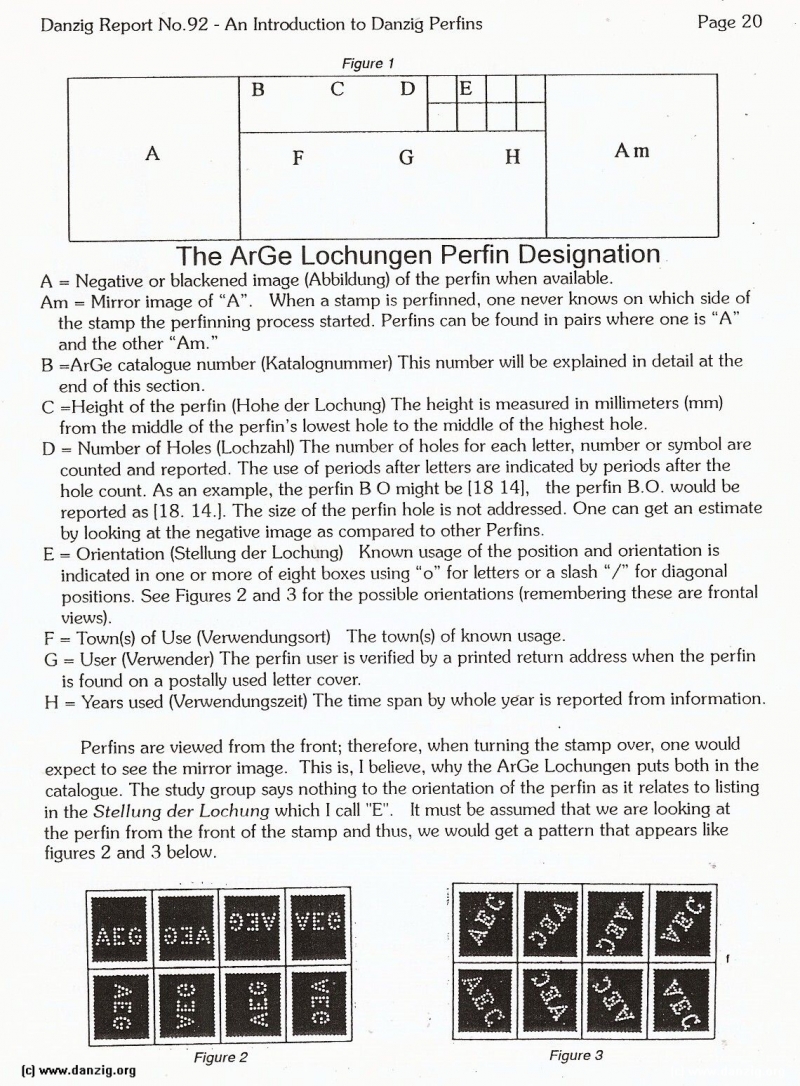
The ArGe Lochungen Perfin Designation
A = Negative or blackened image (Abbildung) of the perfin when available.
Am = Mirror image of “A”. When a stamp is perfinned, one never knows on which side of the stamp the perfinning process started. Perfins can be found in pairs where one is “A” and the other “Am.”
B =ArGe catalogue number (Katalognummer) This number will be explained in detail at the end of this section.
C =Height of the perfin (Hohe der Lochung) The height is measured in millimeters (mm) from the middle of the perfin’s lowest hole to the middle of the highest hole.
D = Number of Holes (Lochzahl) The number of holes for each letter, number or symbol are counted and reported. The use of periods after letters are indicated by periods after the hole count. As an example, the perfin B 0 might be [18 141, the perfin 8.0. would be reported as 118. 14.1. The size of the perfin hole is not addressed. One can get an estimate by looking at the negative image as compared to other Perfins.
E = Orientation (Stellung der Lochung) Known usage of the position and orientation is indicated in one or more of eight boxes using “o” for letters or a slash “/“ for diagonal positions. See Figures 2 and 3 for the possible orientations (remembering these are frontal views).
F = Town(s) of Use (Verwendungsort) The town(s) of known usage.
G = User (Verwender) The perfin user is verified by a printed return address when the perfin is found on a postally used letter cover.
H = Years used (Verwendungszeit) The time span by whole year is reported from information.
Perfins are viewed from the front; therefore, when turning the stamp over, one would expect to see the mirror image. This is, I believe, why the ArGe Lochungen puts both in the catalogue. The study group says nothing to the orientation of the perfin as it relates to listing in the Stellung der Loch ung which I call “E”. It must be assumed that we are looking at the perfin from the front of the stamp and thus, we would get a pattern that appears like figures 2 and 3 below.
Danzig Report Vol. 1 - Nr. 92 - July - August - September - 1996, Page 20.
Hits: 3561
Added: 18/07/2015
Copyright: 2025 Danzig.org

